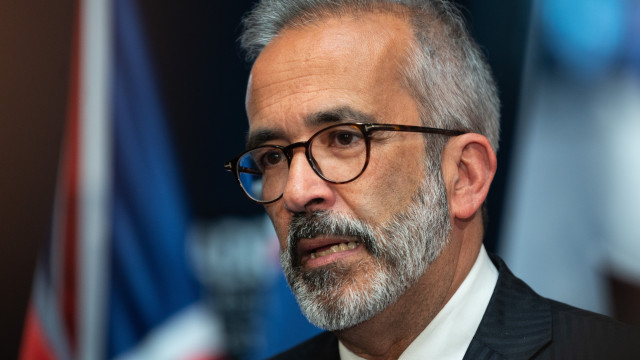
The final report released today by the Health Inspection General (IGAS) highlighted significant issues with Portugal’s emergency call system on a specific day, marked by high call abandonment rates due to long wait times. Morning and afternoon shifts experienced average wait times of 8.45 and 9.41 minutes, respectively, leading to more than 50% of calls being abandoned from 9:30 AM onwards.
This data comes from an investigation commissioned by Health Minister Ana Paula Martins to assess the impact of strikes by pre-hospital emergency technicians (TEPH), which began on October 30, 2024, and coincided with a general public administration strike on November 4, impacting the Urgent Patients Guidance Centers (CODU) of INEM.
On November 4, the report found that of the 7,326 calls received, only 2,510 were answered while 4,816 were not, compared to a 4% abandonment rate on the same day the previous year. The IGAS report notes that during most of the morning and the entire afternoon, the majority of those seeking assistance for health emergencies via 112 abandoned their calls.
The circumstances resulted in the lowest number of TEPH staff on duty handling calls and the highest number of incoming calls, totaling 7,326. The workload almost doubled with 130.8 calls per operator during the morning shift, compared to just 41.4 calls per operator in 2023.
The IGAS highlighted a sharp increase in call abandonment, with call handling time surging dramatically: 643% at night, 3,263% in the morning, and 3,897% in the afternoon, compared to the previous year.
IGAS estimated that potentially 467 high-priority calls with critical situations requiring highly specialized assistance were abandoned. INEM officials argued that the abandonment rate did not signify a lack of assistance, citing numerous direct contacts with fire departments which assumed responsibility for victim assistance.
The ‘callback’ mechanism was minimally effective on that day, handling only 150 returns out of the 4,816 abandoned calls.
The IGAS report concluded that minimal service was not met by 80% of TEPH scheduled for afternoon duty. However, after the strike action ended, CODU activity improved significantly, reflected in a 93% reduction in abandoned calls and an 11.6% increase in answered calls per operator, alongside a 90.6% decrease in average response time.
The report notes that the minimum services for strikes on October 31 and November 4 were neither contested nor negotiated by INEM with the unions because the strike notices were not timely received. The general public administration strike notices were also not communicated to INEM, preventing timely awareness of strike details and proposed minimal services.
The reports were timely sent to the Ministry of Health, but the strike notices did not reach INEM, concluded IGAS. The issue arose because the Secretary-General of the Ministry of Health (SGMS) did not forward the general strike notices to INEM or any other entities under the Ministry’s jurisdiction, classifying and filing the document instead.
IGAS recommends SGMS consider defining a procedure to ensure all entities under the Ministry of Health receive strike notices promptly.
On November 12, 2024, Health Minister Ana Paula Martins announced INEM would report directly to her, emphasizing the institute’s significant role amid the social alarm and need to restore public confidence in the pre-hospital emergency system.
IGAS is investigating the link between 11 deaths and alleged CODU delays during the strike and reported closing an investigation into a fatal incident in Vila Real de Santo António, concluding that the victim’s situation was irreversible.




